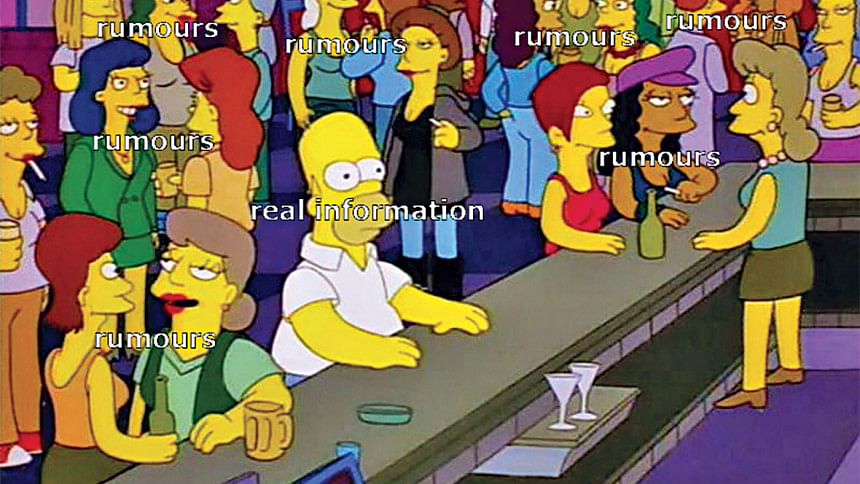Dissecting the rumour mill

Back when I was in fourth grade, my friends and I heard (and believed) rumours that an old zamindar house, located just beside our school, harboured the evil spirit of a dead woman. On every new moon, a white saree-clad woman could be seen walking in and around the house and the sound of footsteps and howling winds could be heard. Sometimes when playing cricket, when the ball would end up in that zamindar house, no one would dare to go to that house to fetch it.
According to psychologists Difonzo & Bordia (2007), a rumour consists of four qualities – information, circulation, unverifiability, and instrumental relevance. The aforementioned incident is an ideal example of rumour, in which information was the presence of an evil spirit in the house. That information circulated among the students of our school. Whether there actually was a spirit of a woman was unverifiable, because none of us ever dared to seek the truth. It was instrumentally relevant, because it impacted our lives as sometimes our tennis balls would end up in that house.
How are rumours produced and how do rumours spread?
The major reason behind the formation of a rumour is uncertainty. When people are doubtful of a particular situation, they tend to speculate in an attempt to understand the situation and to predict future outcomes. That is when the transmission of information through a succession of individuals results in the formation of a complex phenomenon termed as rumours. Deliberate lying and culpable carelessness also contribute in producing rumours.
Rumours circulate via discussion between people, especially when the uncertainty breeds anxiety among them. The rumours which tend to affect the social status of people or which are personally relevant to them spread like wildfires as these can boost self-esteem or serve the egos of people.
So how do rumours affect our lives?
Rumours can be both positive and negative. Negative rumours, especially the ones intended to harm or sully a person or an organisation's reputation can impact our attitudes and behaviours towards them. On the other hand, positive rumours about a person inadvertently encourage us to focus on their positive values, which results in better impressions and we are quick to put our trust in that person, often to our own detriment.
How should we deal with rumours?
Rumours are to be responded to swiftly, firmly, and with honesty. Instead of blindly believing in rumours, we should always try to verify information before consuming or circulating it. Most importantly, we have to stop contributing to the spread of rumours, especially in this era of widespread use of social media.
References
1. Difonzo, N., & Bordia, P. (2007). Rumors influence: Toward a dynamic social impact theory of rumor.
2. Hart, B. (1916). The Psychology of Rumour.
3. International Encyclopedia of the Social Sciences. (August 11, 2020). Rumors.
H. Rainak Khan Real wonders why his transmutation alchemy doesn't work. Will you send help at [email protected]?

 For all latest news, follow The Daily Star's Google News channel.
For all latest news, follow The Daily Star's Google News channel. 



Comments